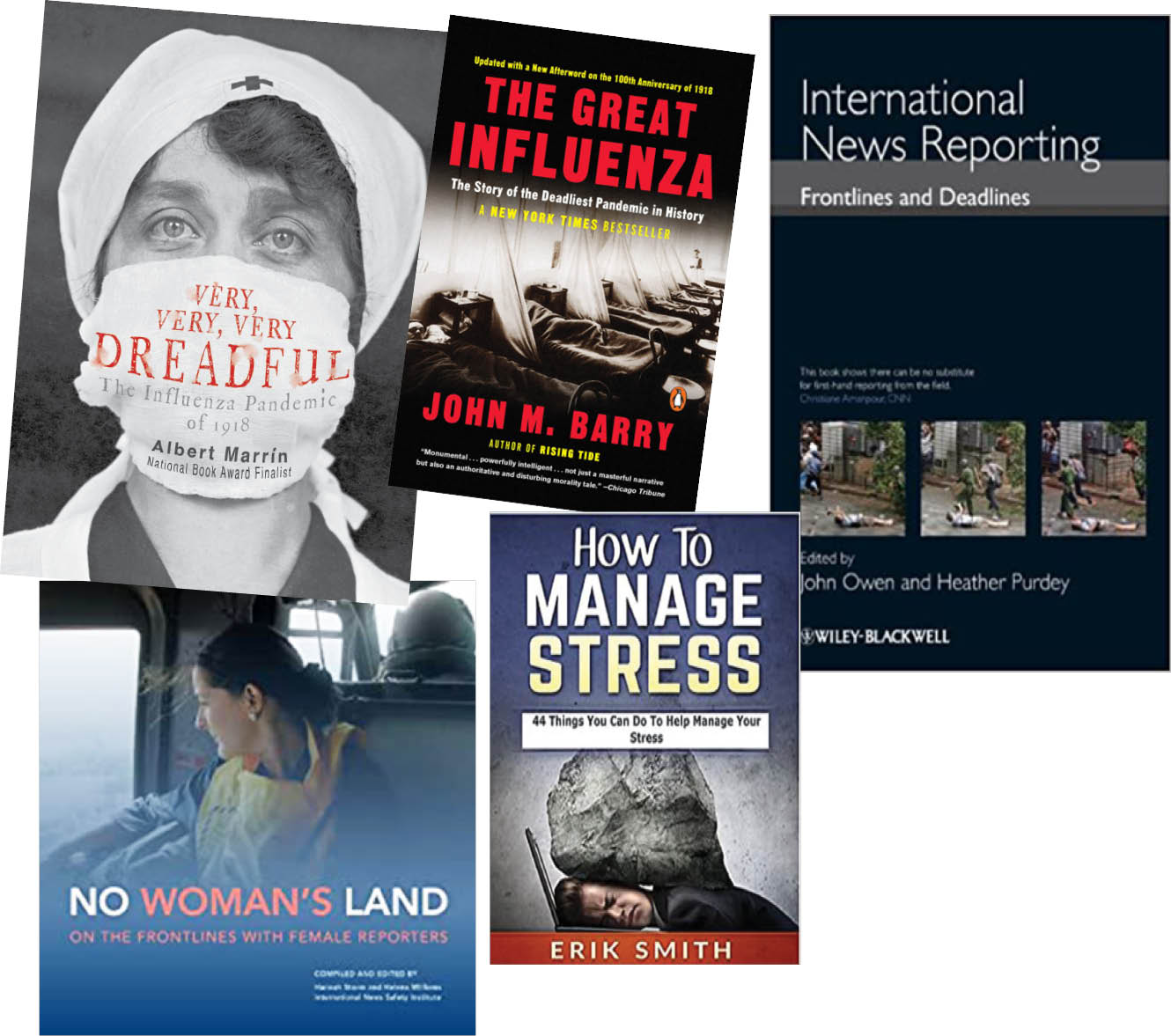FIVE BOOKS FOR JOURNALISTS ON THE CORONAVIRUS FRONTLINES
Rising from a Webinar organised by the International press centre IPC and ACSPN on Humanising COVID 19 reporting, I recommend more than ever before, that media workers need to pay attention to their physical and mental wellbeing. I was a speaker along with Diamond publishers, Mr Lanre Idowu and two eminent professors, Professor Esan and […]

Rising from a Webinar organised by the International press centre IPC and ACSPN on Humanising COVID 19 reporting, I recommend more than ever before, that media workers need to pay attention to their physical and mental wellbeing. I was a speaker along with Diamond publishers, Mr Lanre Idowu and two eminent professors, Professor Esan and Professor who opened and closed the session. Mr Lanre Arongudade Executive Director IPC was the moderator. It was refreshing to speak about Reporting Lifestyle in these uncertain times while other speakers spoke about researching, being the voice of the voiceless and setting the agenda at this difficult time. As a result of the many questions and comments raised at that webinar, I believe it is time to provide that collection of books that will support that media person on the frontlines. A constituency that many persons forget and take for granted.
Here then are the books to support TV producers, feature writers, reporters, cameramen, film editors, newspaper editors and the likes. It’s also time for owners and top management of these media organisations to care for those who have kept their institutions going in good times.
1. In order for us to get a full picture of what we are dealing with. Let’s take a look at history for a guide. The 1918 Spanish flu is a piece of history we must look closely at, as we try to make sense as media persons of what is going on. This will not help educate us, but will assist us to educate our communities. The 1918 influenza: The story of the deadliest Pandemic in History by John Barry is a book all media persons should read. The New York Times’ bestseller is an authentic and disturbing morality tale. What can we do better? A book for this season.
2. Very, very dreadful: The influenza pandemic of 2018. In this book, National book award finalist, Albert Marrin takes a fascinating look at the history and science of the deadly 1918 flu pandemic which started in the summer of 2018 and claimed more wartime soldiers’ lives than the world war. It is estimated that the sickness hit 500 million people killing between 50-100 million people within a spate of 18 months. Curiously Scientists had predicted a new pandemic when these books were written. Question is who listened and what did we do?
3. Research has shown that if you are a reporter or producer covering sad stories like Covid 19, it can affect you psychologically. Information overload with lots of stress can spell disaster and if it is so much bad news and you are so close to it covering it day in day out, you must make time to breathe and take care of yourself. How to manage stress, 44 things you can do to help manage your stress by Erik Smith is a good go to book. As a journalist at this time, you must eat healthily, try and get some sleep, protect yourself as you go in to cover virus related stories. You will do well to shut out Covid 19 stories when you return home and do things that make you happy with family for some time. Everyone is vulnerable to bad news. The journalist is not excluded.
4. No woman’s land-On the frontlines with female reporters is the first book dedicated to the safety of female journalists. Edited by Hanna Storm and Helena Williams, it’s a unique collection of articles written by 40 women from around the world who work in the news media. This book introduced by CBC’s Lara Logan who was attacked while covering the Egyptian uprising at the Tahrir square has contributions from Female journalists in Somalia, Romania, Russia and several other parts of the world. Covering Covid 19 is similar to covering a war. This book that has BBC’s International Correspondent Lyse Doucet’s intervention, CNN’s Hala Gorani and other leading reporter’s intervention is a valuable contribution to frontline journalism by women.
5. International news reporting: Frontlines and deadlines by Heather Purdey and John Owen is a collection of essays by top international correspondents in print, broadcasting and photojournalism. This is a great book to refresh us on why we first took up this profession and remind us of how important we are at this time.
BONUS BOOKS:
This is when we need to read that book on work life balance. Books on how to become an entrepreneur and how to write that book you have always wanted to write. This is when your employer might begin to think he has too many mouths to feed. While doing your work diligently, think of how to rebuild your life after Covid 19. There are many Webinars and resources for journalists online to assist you with your research and with your health. Tap into them and remember you must always work hard on that story to separate yourself from the dabblers. Do your stories well, do the work, but learn to breathe.
RAMADAN MUBARAK TO ALL OUR READERS.
